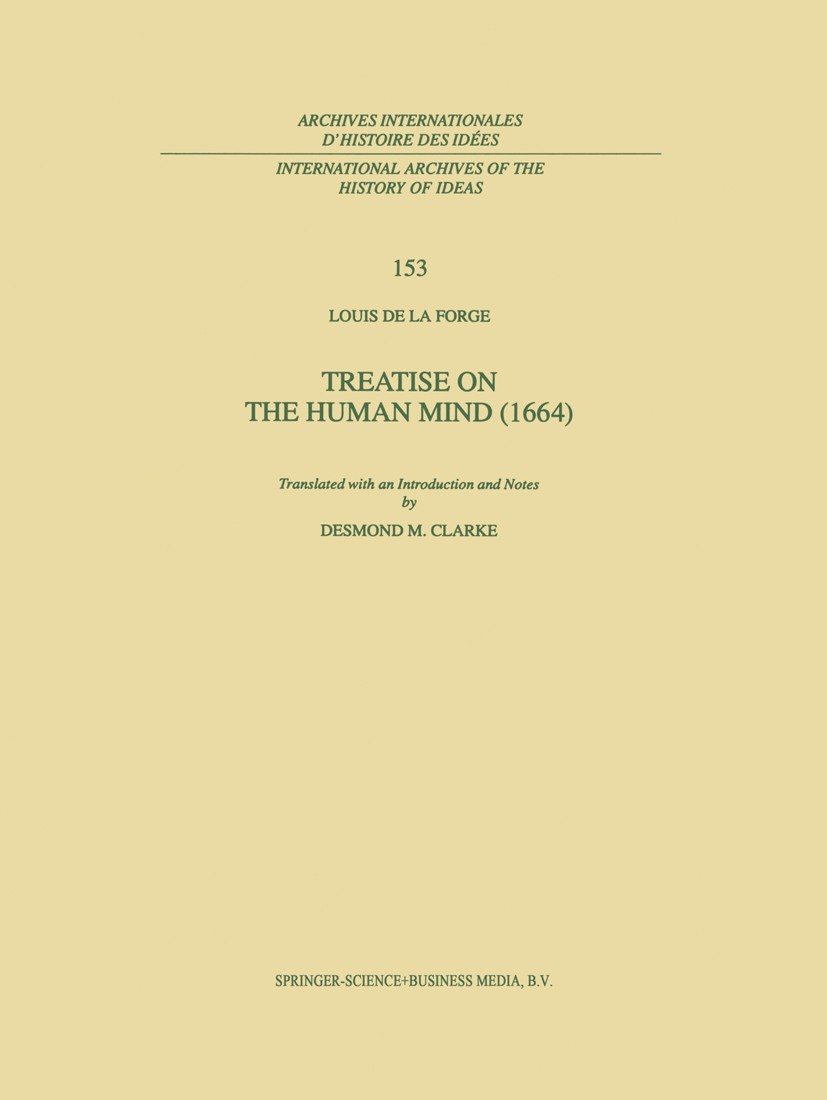| 书目名称 | Treatise on the Human Mind (1666) |
| 编辑 | Louis Forge |
| 视频video | http://file.papertrans.cn/930/929732/929732.mp4 |
| 丛书名称 | International Archives of the History of Ideas‘ Archives internationales d‘histoire des idées |
| 图书封面 |  |
| 描述 | Descartes‘ philosophy represented one of the most explicit statements of mind-body dualism in the history of philosophy. Its most familiar expression is found in the Meditations (1641) and in Part I of The Principles 0/ Philosophy (1644). However neither of these books provided a detailed discussion of dualism. The Meditations was primarily concerned with finding a foundation for reliable human knowledge, while the Principles attempted to provide an alternative metaphysical framework, in contrast with scholastic philosophy, within which natural philosophy or a scien tific explanation of natural phenomena could be developed. Thus neither book ex plicitly presents a Cartesian theory of the mind nor does either give a detailed account of how, if dualism were accepted, mind and body would interact. The task of articulating such a theory was left to two further works, only one of which was completed by Descartes, viz. the Treatise on Man (published posthumously in 1664). The Treatise began with the following sentence, describing the hypothetical human beings who were to be explained in that work: ‘These human beings will be com posed, as we are, of a soul and a body; and, first of al |
| 出版日期 | Book 1997 |
| 关键词 | 15th century; Cartesian; Cartesianism; David Hume; English; Nicolas Malebranche; complements; corpus; editio |
| 版次 | 1 |
| doi | https://doi.org/10.1007/978-94-017-3590-2 |
| isbn_softcover | 978-90-481-4929-2 |
| isbn_ebook | 978-94-017-3590-2Series ISSN 0066-6610 Series E-ISSN 2215-0307 |
| issn_series | 0066-6610 |
| copyright | Springer Science+Business Media B.V. 1997 |
 |Archiver|手机版|小黑屋|
派博传思国际
( 京公网安备110108008328)
GMT+8, 2026-1-16 03:36
|Archiver|手机版|小黑屋|
派博传思国际
( 京公网安备110108008328)
GMT+8, 2026-1-16 03:36


